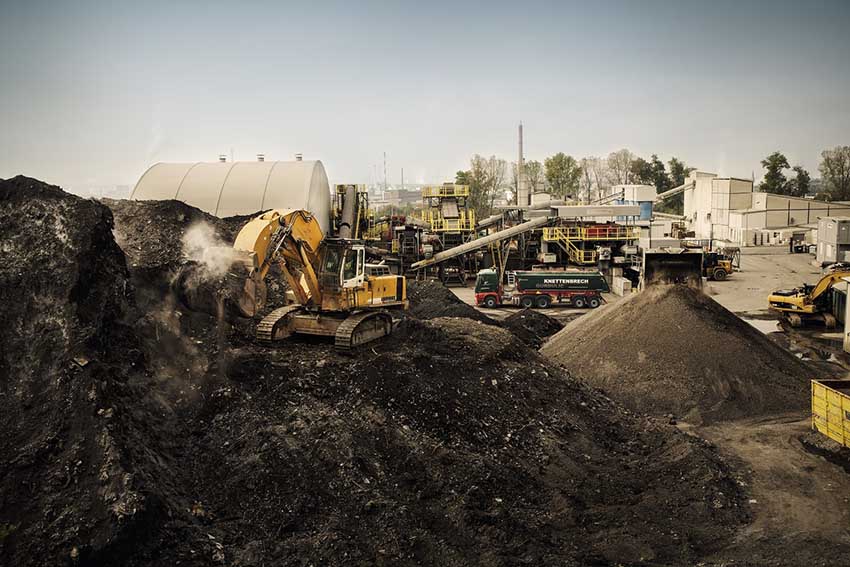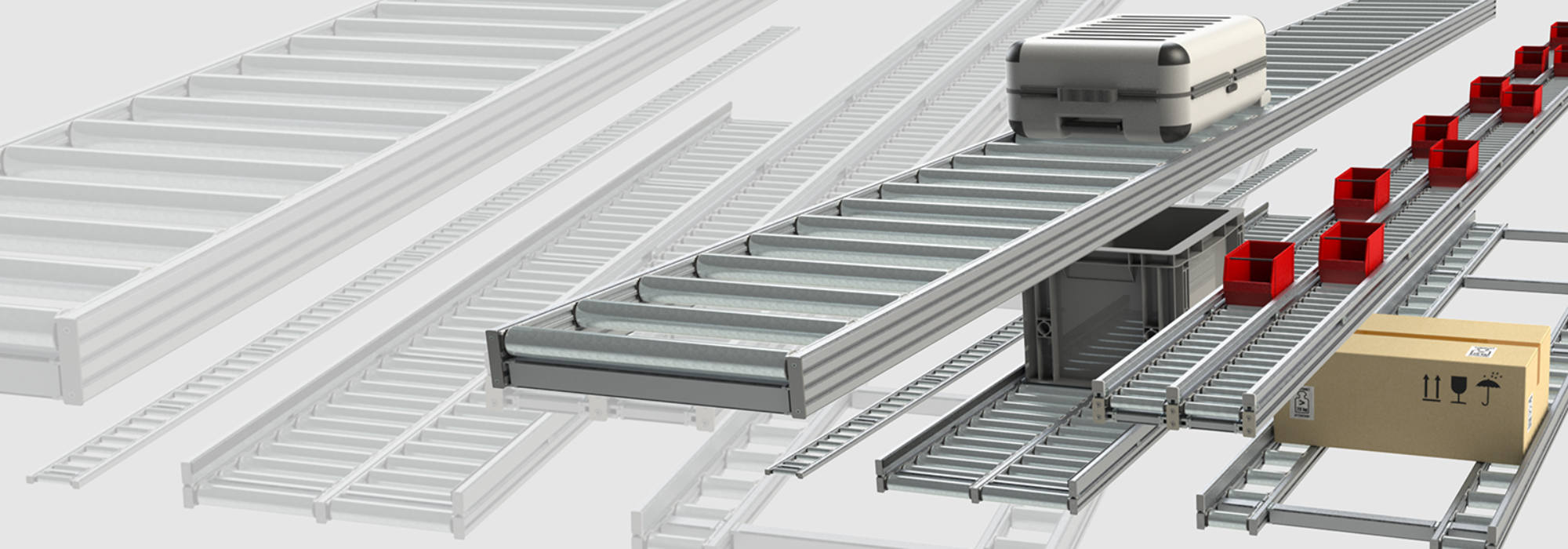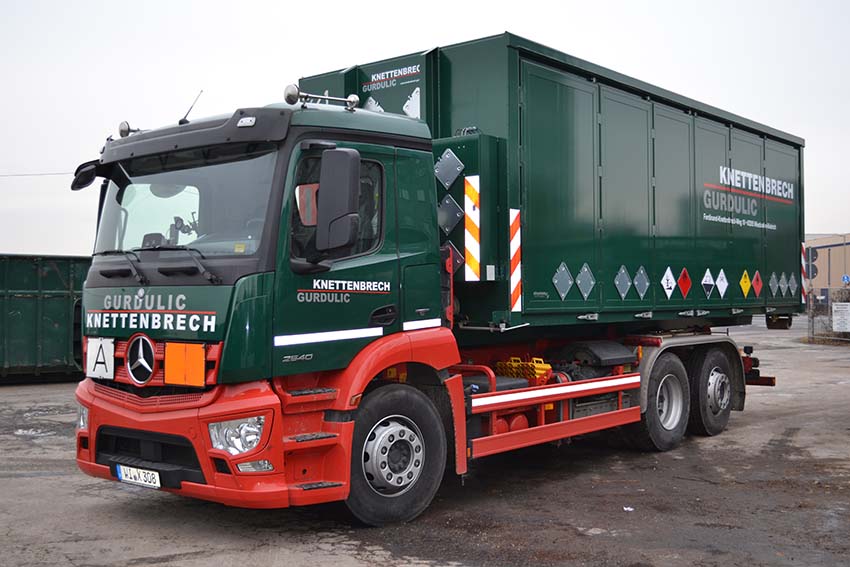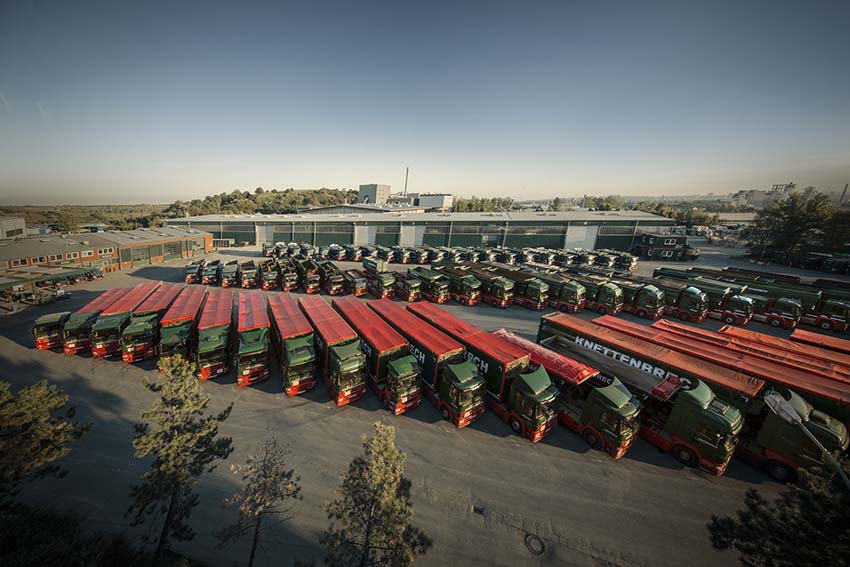KNETTENBRECH + GURDULIC is one of the leading companies in the waste disposal and recycling industry in Germany. With its 25 places of location, 2.000 employees and a fleet of more than 1000 trucks, Knettenbrech + Gurdulic manages 1.4 million tons of waste yearly. Founded in 2001, the company has evolved into a medium-sized group of companies that is with its disposal concepts and recycling methods at the forefront of progress. Together with their affiliated companies, they cover all services related to waste disposal and recycling as well as real estate services and cleaning – the best prerequisites for integrated concepts and economical solutions.
With the principle of waste management “avoidance before recycling and disposal”, the KNETTENBRECH + GURDULIC Group makes a significant contribution to a clean environment.
Easy Engineering: What are the main areas of activity of the company? What are the ranges of products?
KNETTENBRECH + GURDULIC: Sustainable conservation of natural resources attaches great importance to the creation of closed material cycles. Modern recycling management therefore plays an important role and ensures that waste produced can be reused or recycled to the highest possible quality. We offer a wide range of services in this area:
- Waste disposal and supply;
- Scrap and scrap metal;
- Forwarding and logistics;
- Biomass and substitute fuel;
- Real estate service and cleaning;
- Hazardous and liquid waste;
- Construction materials and mineral waste.

E.E: What’s the news for 2021 about new products?
 MONTECH’S NEW ROLLER CONVEYOR SYSTEMS – MAXIMUM FLEXIBILITY FOR MODERN CONVEYING PROCESSES
MONTECH’S NEW ROLLER CONVEYOR SYSTEMS – MAXIMUM FLEXIBILITY FOR MODERN CONVEYING PROCESSES
KNETTENBRECH + GURDULIC: This question doesn’t really fit to us. We are an innovative service provider that creates intelligent waste avoidance concepts for customers and offer a broad portfolio of services. In 2021, we want to expand above all and offer our services at even more different locations. Recently, we opened a location in Munich, Germany.
E.E: At what stage is the market where you are currently active?
KNETTENBRECH + GURDULIC: About 30 years ago, the services provided by the waste management essentially focused on the collection, transportation and landfilling of waste. Today, the circular economy is a system of different and coordinated facilities, technologies and services at a large number of value-added stages.
The conditions of the environmental service branch are good right now: High investments in staff and technology are continuously improving the standards of material and energy recycling. Over 310,000 qualified and motivated employees work in around 10,700 private and municipal companies at all stages of the value chain, generating sales of around 84 billion Euro and value added of around 28 billion euro.
Among the important changes was the pandemic, which not only demonstrated the industry’s performance and adaptability, but also its systemic relevance for the functioning of social and economic life in Germany.

E.E: What can you tell us about market trends?
KNETTENBRECH + GURDULIC: Waste management is now one of the most important challenges facing our world. How we deal with our waste is crucial for our health, but also for our impact on the climate. This topic in particular is very important to more and more people and is playing an ever-increasing role. Recycling, individual processing plants, the use of residual waste for energy and landfill gas collection and use all make a significant contribution to reducing greenhouse gases. Climate protection will also play an increasingly important role for us in the future and must be taken into account in individual concepts.
Moreover, it is apparent that the circular economy is being given a new significance from different perspectives. The discussions about the Circular Economy as a new form of economy for reducing resource consumption not only lead to the conclusion that the Circular Economy will play the central role in the future in making raw materials available for the economic cycle.
Furthermore, international events also see the Circular Economy as an “Accelerator for Sustainable Recovery” or see a “New Dynamic in the Emerging Circular Economy”. Climate protection will also play an increasingly important role for us in the future and must be taken into account in individual concepts.
Also, it is apparent that the circular economy is being given a new significance from different perspectives. The discussions about the Circular Economy as a new form of economy for reducing resource consumption not only led to the conclusion that the Circular Economy will play the central role in the future in making raw materials available for the economic cycle. In the coming years Waste management will become an increasingly important player in economic change in the years to come. The industry must rise to this challenge with the claim that it will want to help shape the change as well.
In addition to that, many other events affect us. Trends such as the increasing world population and urbanization are having a major impact on the waste industry. We have to adapt to the new circumstances and adjust our services accordingly. E-Commerce plays a big role too. The waste industry now stands for much more than just picking up trash. Companies have to keep up with the trends and present themselves as a modern company with a promising future.

E.E: What estimations do you have for 2021?
KNETTENBRECH + GURDULIC: We see ourselves as a growing, stable company. Covid-19 has demonstrated more than ever the future viability of our operations. We did not have to lay off a single employee due to the pandemic and were able to continue working on our expansion strategy. In addition, we continued to post dynamic growth and once again placed ourselves as one of the most successful owner-managed companies in the waste management sector. In 2021, we intend to continue on this successful course and position ourselves even more successfully on the market.

